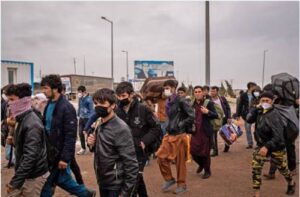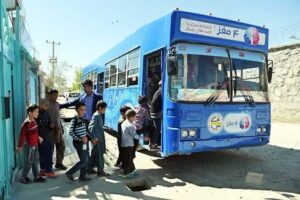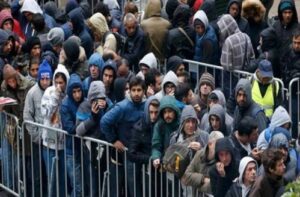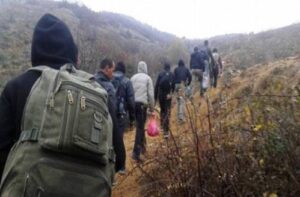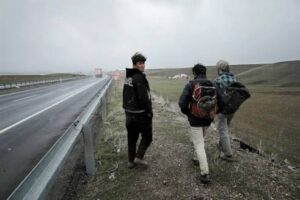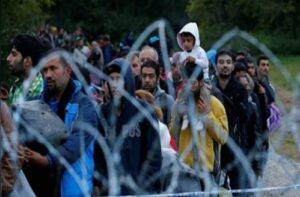
KABUL (SW) – Mohammad Zubair, a prominent and educated young Afghan living in Belgium, has taken admission in university in pursuit of a master's degree in ‘world politics after obtaining a citizenship card there.
Zubair, a journalism graduate of Kabul University, has worked in Afghanistan as a producer and media reporter, and has also taught at the university as a teacher. He cites many factors, including insecurity, as reasons for his emigration.
Zubair, who moved to Belgium two years ago with his wife and two children, told Salam Watandar that his wife was a doctor in Afghanistan and has now resumed her education, and her daughter is in school in Belgium .
But, he has not yet forgotten the difficulties of irregular migration routes that took him to Belgium .
He said human smuggling in Afghanistan usually takes place through travel companies and money changers, and smugglers deceive people by promising them a future that is too good to be true and forcing them to migrate illegally in dangerous ways.
Zubair narrated the story of his migration from Afghanistan to Belgium by crossing through a number of countries.
"Traffickers are not fulfilling their obligations at all. Right from the start of the irregular migration from the country of origin to the country of destination, the routes are very difficult to cross. The routes that migrants take are mountains, rivers, plains and cliffs. Even the places where migrants live occasionally are places where usually animals such as dogs are kept at night, but you have to sleep hungry on the rocks. A room that cannot accommodate 3 to 4 people is usually filled with more than 50 people. Going to toilet remains another serious problem, especially for women due to the filth and smell”, he said.
Zubair's trip has cost him more than $ 30,000. The amount was higher than he imagined in the first place. The young Afghan journalist said many stories about the migration routes are hidden from the media such as those about the suffering of asylum seekers to the inhuman treatment they face.
Zubair summarized all of what he faced between Afghanistan and Belgium in Iran, Turkey, and Greece as ‘very horrible’. He said that in the Baku region on the border between Iran and Turkey most of the smugglers are Kurds who treat the immigrants in unacceptable and brutal way, including murdering the migrants with various tools.
According to Zubair, all women, children, young and old are forced to act according to the principles and rules of the smugglers. He added that he has been in contact with print newspapers since his stay in Afghanistan and has written a book on irregular migration.
Commenting on this, Kazem Elham, spokesman for the International Organization for Migration (IOM), cited economic problems and insecurity in Afghanistan as the main causes of irregular migration. In this regard, he said, in addition to raising awareness, the government and relevant institutions should also focus on providing employment opportunities for young people to prevent the continuation of illegal immigration.
In an interview with Salam Watandar, Syed Abdul Basit Ansari, Advisor to the Ministry of Refugees and Returnees, said that the Ministry's public service messages for awareness is effective in reducing irregular migration. He said that as a result of the awareness campaign, the number of immigrants seeking asylum in Europe has decreased from about 55,000 in 2018 to 33,000 in 2019.
According to the Ministry of Refugees and Returnees, about 400,000 Afghan citizens have returned voluntarily from Iran and Pakistan since the beginning of 2020. Of these, about 300,000 came from Iran and the remaining 50,000 from Pakistan.
The ministry added that on daily basis some 200 to 300 Afghan citizens are repatriated from other countries.
ENDS
